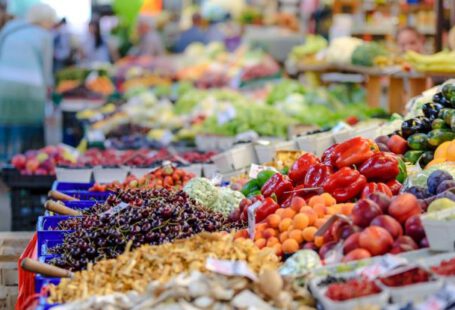Teaching Kids the Art of Composting
Teaching children about composting from a young age is not only an educational experience but also a practical way to instill eco-friendly habits early on. Composting is a simple yet effective way to reduce waste and nourish the soil, and involving kids in this process can be both fun and educational. Here are some creative ways to educate kids about composting.
Making it a Hands-On Experience
One of the best ways to teach kids about composting is by making it a hands-on experience. Set up a compost bin in your backyard or even a small countertop composting system in your kitchen. Let the kids get involved in collecting food scraps, yard waste, and other compostable materials. Show them how these items break down over time to create nutrient-rich soil that can be used in the garden.
Explaining the Science Behind Composting
Take the time to explain the science behind composting to kids in a way that is easy for them to understand. Talk about how organic matter decomposes with the help of microorganisms like bacteria and fungi. Show them how heat, moisture, and oxygen play a role in the composting process. Encourage them to observe the changes happening in the compost bin over time and ask questions about why certain things break down faster than others.
Turning it Into a Game
Make composting fun by turning it into a game. Challenge kids to see who can collect the most food scraps in a week or who can identify the different types of materials that can be composted. Create a composting journal where kids can track the progress of their compost bin and make notes about what they have learned along the way. Offer small rewards or incentives to keep them motivated and engaged in the process.
Incorporating Art and Creativity
Get creative with composting by incorporating art projects into the learning process. Encourage kids to draw or paint pictures of the composting process or create sculptures using recycled materials. Use compostable materials like leaves, twigs, and grass clippings to make collages or nature-inspired crafts. By combining art and composting, kids can express their creativity while learning about the importance of recycling and sustainability.
Taking Field Trips to Learn More
Enhance kids’ understanding of composting by taking them on field trips to local farms, community gardens, or composting facilities. Seeing the composting process in action outside of the home can provide a real-world perspective and show kids the impact that composting can have on the environment. Encourage them to ask questions and engage with professionals in the field to deepen their knowledge and appreciation for composting.
Encouraging Responsibility and Ownership
Teaching kids about composting also involves instilling a sense of responsibility and ownership over the process. Assign them specific tasks related to composting, such as turning the compost pile, monitoring the moisture levels, or adding new materials. By giving kids a role in the composting process, they will feel a sense of accomplishment and pride in contributing to a more sustainable lifestyle.
Inspiring Environmental Stewardship
By educating kids about composting, we are not only teaching them a practical skill but also instilling values of environmental stewardship and sustainability. Composting is a small but impactful way to reduce waste, protect the planet, and promote a greener future for generations to come. By involving kids in the composting process, we are helping to shape them into environmentally conscious individuals who care for the world around them.
In Conclusion: Growing Green Minds
Educating kids about composting is more than just teaching them about recycling food scraps – it’s about nurturing a mindset of sustainability and environmental awareness. By making composting a hands-on experience, explaining the science behind it, turning it into a fun game, incorporating art and creativity, taking field trips, encouraging responsibility, and inspiring environmental stewardship, we can help kids develop a deeper understanding of the importance of reducing waste and caring for the Earth. Together, we can grow green minds and cultivate a generation of eco-conscious individuals ready to make a positive impact on the world.





